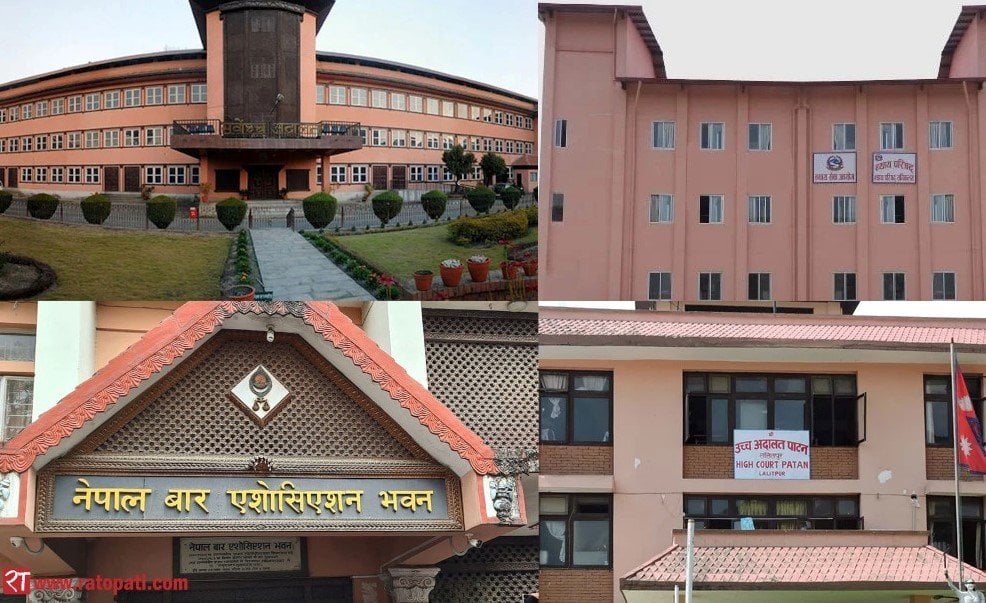Judicial Independence: Myth or Reality in Nepal?

The existence of an independent judiciary is widely considered a prerequisite for any nation that seeks to safeguard democracy, the rule of law and the fundamental rights of its citizens. Independent judiciary is a sine qua non for any democratic nation that aspires to safeguard the rights and freedoms of its citizens. Judicial independence refers to the ability of courts and individual judges to perform their duties impartially and free from any external pressures, inducements or interference. While Nepal's constitution elucidates lofty ideals and protections to ensure the independence of the judiciary, skepticism is rife among both legal experts and the general public about whether this exists in practice versus just on paper. It is imperative that we critically analyze the various factors that shape judicial independence, identify gaps between constitutional theory and ground realities, and mobilize political and public will for undertaking reforms that can resurrect faith in the justice system.
The judiciary in Nepal is hierarchical in nature, comprising the Supreme Court, seven High Courts, seventy-seven District Courts and various special tribunals. The Supreme Court is the highest court and final court of appeals on constitutional matters. High Courts serve as appellate courts over decisions from District Courts as well as exercising extraordinary original jurisdiction in certain types of cases. While the executive arm of government is responsible for implementing laws and the legislative arm for making laws, the judiciary serves as the watchdog that checks potential violations of the constitution and protects citizens' rights by striking down illegal executive actions and improper laws made by the legislature. For the judiciary to fulfill this role effectively, judges must be able to act independently to uphold the rule of law and dispense justice fairly, rather than work under duress or pressure from the other organs of the state, powerful political actors, private businesses or other vested interests.
Nepal's constitution lays down certain safeguards that seek to ensure the independence of the judiciary. For instance, judges are appointed by the President on the recommendation of the Judicial Council, which is chaired by the Chief Justice. The council's membership comprises senior Supreme Court justices, the Law Minister, experienced legal experts and eminent persons. This is intended to prevent partisan political considerations from influencing appointments. To secure financial autonomy, expenses related to the Supreme Court and subordinate courts are charged directly to the consolidated national fund rather than being vulnerable to politically motivated budget cuts by the executive or legislature. Judges also enjoy security of tenure, remaining in office until mandatory retirement age. They cannot be arbitrarily removed except through a rigorous impeachment procedure in Parliament on grounds of incompetence or gross misconduct.
However, legal experts contend that constitutional protections have not necessarily translated into de facto everyday independence for the judiciary. The appointment process continues to be plagued by perceptions of opacity, executive interference, nepotism and preferential treatment rather than decisions based solely on merit. For instance, there are recurring allegations of preferential treatment given to candidates of certain castes, ethnicities or with connections to powerful political figures. There is also a notion that the few instances of judges being impeached had more to do with partisan politics than genuine accountability. Furthermore, the massive case backlogs point towards systemic constraints on judicial assertiveness. While lack of basic court infrastructure and insufficient qualified support staff are certainly major factors, experts argue that executive interference and intimidation of judges also play a role by compelling avoidance of controversial rulings. Judges are also viewed as acting under duress stemming from fear of losing executive-controlled post-retirement benefits and sinecures, which should be guaranteed. Public credibility is eroded when judges perceived to be acting with impunity in cases of serious misconduct or corruption are simply transferred rather than removed.
Turning the tide to build genuine judicial independence requires action across multiple fronts to strengthen both structural and functional aspects. Foremost is reforming the Judicial Council and appointment process to enhance transparency and ensure appointments are based solely on merit, integrity and competence, not connections or political favors. Clear performance benchmarks and accountability mechanisms should guide the elevation of judges to higher courts, as well as the dismissal of those found incompetent or guilty of misconduct. Tenure can be further safeguarded by forming an independent constitutional commission to decide transfers, performance appraisals and benefits rather than leaving them to the whims of the executive. Parliament needs to allocate adequate budgetary resources for improving court infrastructure, digitization, judge training programs and hiring sufficient qualified court staff at all levels. Members of the judiciary have to be held to the highest ethical standards through internal performance audits, mandatory asset disclosures and enforceable codes of conduct. The Nepal Bar Association plays a vital role as a public watchdog, raising awareness about threats to judicial independence while providing constructive reform proposals.
The erosion of public faith in the independence of the judiciary has profoundly troubling implications for Nepal's democracy, constitution and rule of law. Despite constitutional safeguards, in practice, the judiciary continues to be in a position of subordination and vulnerability to indirect control by the executive. With sincere political will and coordinated action on multiple fronts, the ideal of an impartial and fully autonomous judiciary can yet become a reality in Nepal. But this requires moving from lofty theory to actual practice, beyond elegant words in the constitution towards substantive and systemic reform. All organs of the state, especially the executive, legislature and judiciary, must see judicial independence not as an abstract principle but as a practical lived reality that is fundamental to delivering justice, upholding democracy and protecting human rights. Only an empowered judiciary that citizens can trust to act independently of partisan interests can fulfill this solemn constitutional duty. The time for incremental tweaks is over; Nepal needs a comprehensive overhaul before it is too late.



Leave Comment